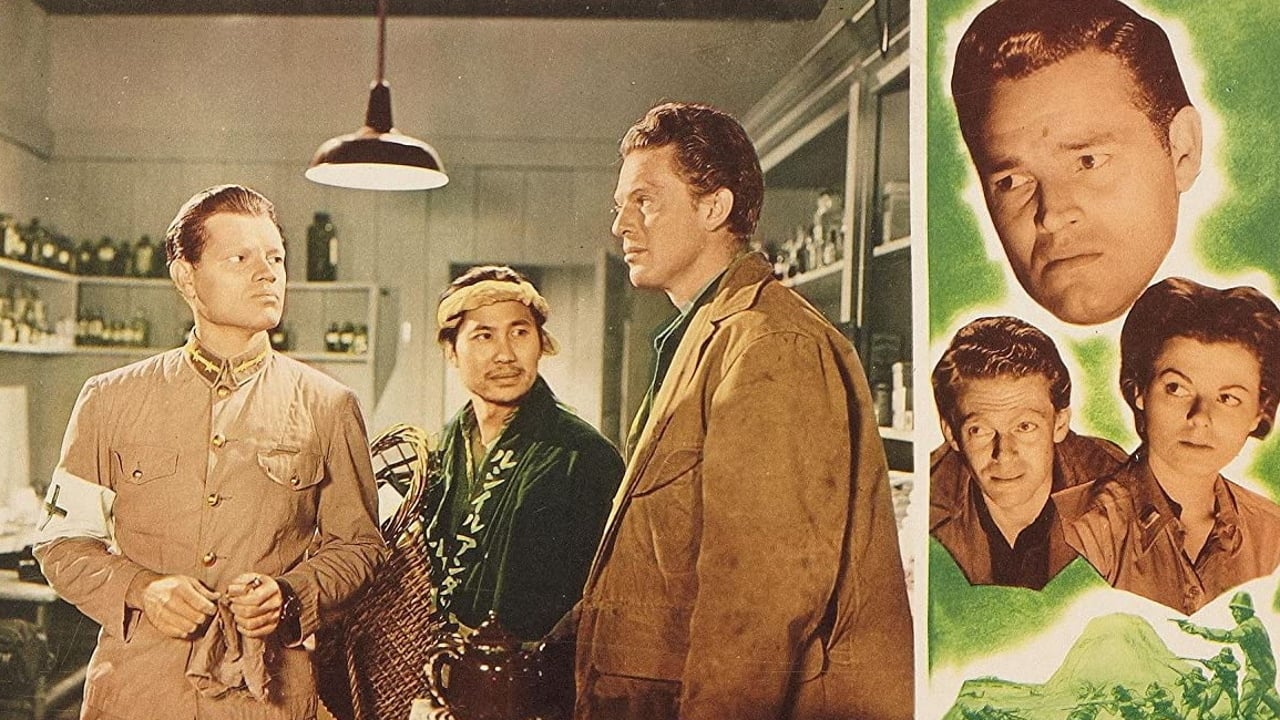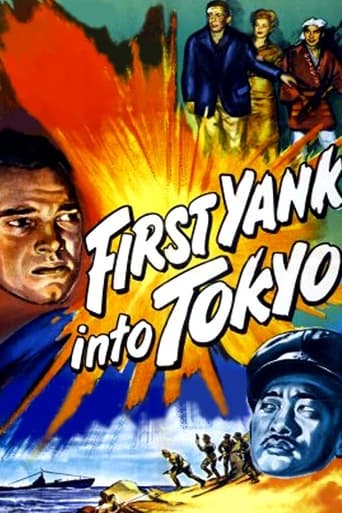

This is How Movies Should Be Made
... View MoreDreadfully Boring
... View Moredisgusting, overrated, pointless
... View MoreBlistering performances.
... View MoreThat sentiment, which came at the tacked-on ending of this strange movie, didn't turn out to be true.This film is notable mainly for the presence of Tom Neal, who was convicted of involuntary manslaughter in 1965.Neal plays Steve Ross, a soldier who had lived in Tokyo and spoke Japanese like a native. He agrees to undergo plastic surgery to look Japanese and goes undercover in a concentration camp to rescue Lewis Jardine, a scientist with valuable secrets about the atomic bomb. It's a doubly dangerous mission because Ross' old roommate, Hideko Okanura (Richard Loo) heads the camp.The real story here is the love story between Ross and the camp nurse, Abby Drake (Barbara Hale), whom Ross had presumed dead after they left one another back in the states. She doesn't recognize him but feels sympathetic towards him.This is a real Hollywood/World War II artifact. The set is unbelievably cheap and obvious, the concentration camp is more like a low-budget Holiday Inn, and the Japanese are Chinese and American.There has been criticism levied at the way the Japanese are portrayed, and I like the analogy one of the reviewers here made -- would you like to see a film with a sympathetic Al Qaeda character? It's important to watch a film and see it in the context of the times. Grant you, it's a contrived plot and not particularly good.Barbara Hale would go on to fame as Della Street in the Perry Mason series. She's still alive and the mother of actor William Katt. Tom Neal's private life was far more impressive than his professional one. He's okay here. These films were always made very quickly, so it's hard to criticize the finer points of his performance.The atom bomb was dropped before the release of the film, so the studio went back and threw on another ending.Lots of films in those days did not portray the grittiness and atrocity of the war. Most of these propaganda movies were made for general audiences and soft-pedaled some of the more horrible aspects. It was a different time and the world was different. Today we can go to the movies or watch the news and see all the atrocity, violence, and horror we want. Whoopee.
... View MoreDuring World War II, Hollywood tried everything to boost the morale on the homefront. Some films were great, but other films reached into the bottom of the barrel especially this one. This has got to be one of the most racist films in the history of the medium. What especially was disturbing were lines like "You all should be put in cages", the film makes it seem like that they are trying to portray the Japanese were less than human. I don't mind movies that try to boost morale, but there is no place for racism in the movies.
... View MoreWhat with the 1943 "Gung Ho", "Guadalcanal Diary," "Purple Heart,"and other made-during-World War II films I saw as a kid on television, I had thought I had seen every racist anti-"Jap" propaganda movie evermade by Hollywood. But "First Yank Into Tokyo" is one I do notremember seeing as a kid. It is not only the most racist movie I haveever seen, it is probably simply the worst film I have ever seen in anycategory of motion picture. To me as an American who has lived inJapan for 30 years, the Asian-Americans playing Japanese soldiers areas obviously not racially Japanese as if someone had made a movie aboutWilliam the Conqueror fighting the Battle of Hastings in 1066 with acast of Europeans recruited entirely from Athens, Greece and Instanbul,Turkey. Everything, from the physical characteristics to themannerisms, is wrong. On the one hand, the film presents the Japanese as bespeckled, bucktoothed, arrogant goofs. On the other hand, when portraying aJapanese prisoner of war camp during World War II, the film makes theplace a country club compared to the real horrors encountered by anyonewho was held in a Japanese POW camp during the war. Overall, the film radiates an overwhelming ignorance and apathy bythe film makers towards any authenticity whatsoever.
... View MoreWhen this film is mentioned at all, it is generally with a sneer. It has a reputation for being "cheesy," mostly because it feature Tom Neal in "Japanese" makeup. It's easy to judge movies from the past with today's eye and say they are racist, insensitive, etc., but keep in mind this was made while we were still at war. The disjointed ending is a result of the A-bomb being dropped before the film was finished. A new finale was thrown together so the whole thing made more sense. Not a great movie, but not bad...not bad at all.
... View More